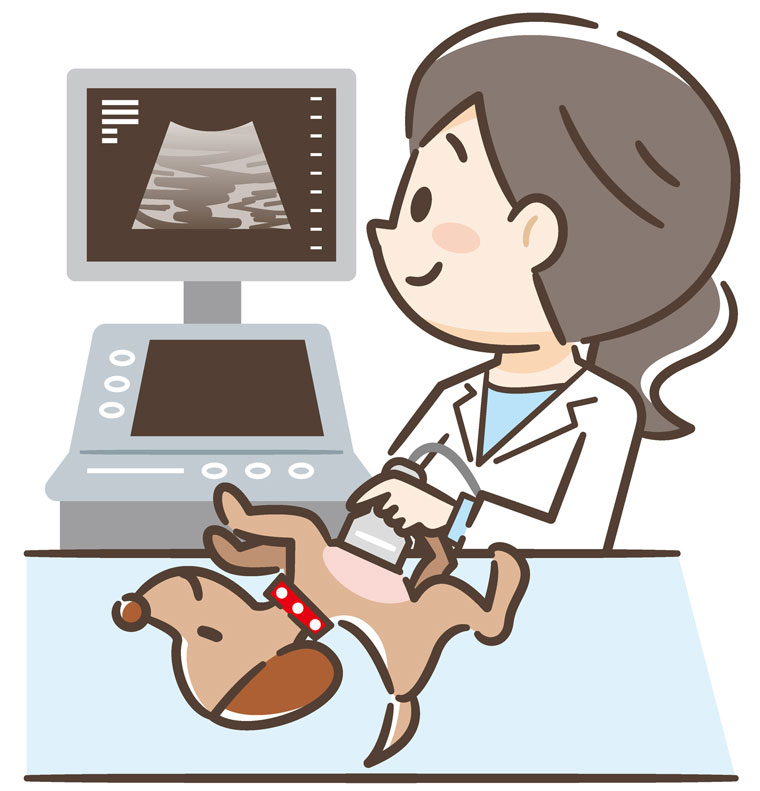Echocardiography in Dogs

An echocardiogram is an ultrasound of the heart. It's used in veterinary medicine to evaluate the structure and function of the heart and help diagnose and assess cardiac conditions.
What Is Echocardiography in Dogs?
When an ultrasound is done on a dog's chest to evaluate the heart, it is called an echocardiogram. It is a non-invasive test. Generally, the dog is placed on his side, and his chest is lubed up with gel. Then, an ultrasound probe sends out sound waves. They bounce against the tissues inside the chest and return, and then a computer creates a real-time image of the heart.
Most of the time, neither sedation nor general anesthesia is necessary to perform an echocardiogram on a dog, but it may be required if the dog is particularly nervous or aggressive.
An echocardiogram gives a veterinarian highly detailed information about how a dog's heart is formed and how it's functioning. The vet can make highly specific measurements of the heart wall and its four chambers. Blood can be seen moving through the valves, arteries, and veins. Even the blood's direction and velocity can be accurately measured.
When Is an Echocardiogram Performed on a Dog?
Echocardiography is a helpful tool and may be recommended in the following circumstances:
- When a chest x-ray indicates a heart condition, to help diagnose it.
- When heart disease is under treatment, to help monitor response.
- When the veterinarian is unsure if changes on x-rays are due to lung or heart dysfunction.
- When a dog is a member of a breed known to develop a particular heart condition, to catch it early.
- When a dog is showing signs that could be related to heart disease but isn't yet showing signs on x-ray.
Some general practice veterinarians have echocardiogram capabilities in their clinic, but the test is often referred out to a specialty clinic and a veterinary cardiologist.
An echocardiogram can be a beneficial test done in conjunction with a thorough physical exam, a well-taken history of clinical signs, and other tests like an ECG and chest x-rays.
You May Also Like These Articles:
Mitral Valve Insufficiency in Dogs (MVI)
Boxer Cardiomyopathy: Arrhythmogenic Right Ventricular Cardiomyopathy
ECG: Electrocardiogram in Dogs
Congestive Heart Failure: CHF in Dogs
Disclaimer: This website is not intended to replace professional consultation, diagnosis, or treatment by a licensed veterinarian. If you require any veterinary related advice, contact your veterinarian promptly. Information at DogHealth.com is exclusively of a general reference nature. Do not disregard veterinary advice or delay treatment as a result of accessing information at this site. Just Answer is an external service not affiliated with DogHealth.com.
Notice: Ask-a-Vet is an affiliated service for those who wish to speak with a veterinary professional about their pet's specific condition. Initially, a bot will ask questions to determine the general nature of your concern. Then, you will be transferred to a human. There is a charge for the service if you choose to connect to a veterinarian. Ask-a-Vet is not manned by the staff or owners of DogHealth.com, and the advice given should not delay or replace a visit to your veterinarian.


